If you are navigating the complex world of mortgage options, understanding the differences between FHA loans and conventional mortgages is essential.
Both loan types cater to diverse financial situations and housing needs, making it crucial for potential homeowners to really know their unique aspects to make an informed decision.
This article dives into each loan type’s prerequisites, benefits, and limitations, offering clarity to both first-time homebuyers and seasoned property investors.
Keep reading to explore which loan best suits your financial goals and help you secure your future home.
Table of Contents
ToggleWhat is an FHA Loan?
An FHA loan is a mortgage insured by the Federal Housing Administration (FHA), a part of the U.S. Department of Housing and Urban Development (HUD).
This type of loan is especially beneficial for first-time homebuyers and those who have lower credit scores or smaller down payments.
FHA loans are known for their more accessible financial requirements compared to conventional loans and are popular due to their lower barriers to entry.
Credit Requirements and Down Payments
FHA loans are particularly forgiving regarding credit history and down payment amounts.
Borrowers can qualify for an FHA loan with a credit score as low as 500, though a minimum of 10% down is required.
Those with a credit score of 580 or higher can make a down payment as low as 3.5%.
This makes FHA loans an appealing option for individuals who may not qualify for conventional financing due to their credit history or financial constraints.
[Related Article: How to save for a house: The home savings tips you should know]
Mortgage Insurance Requirements
One of the significant aspects of FHA loans is the requirement for mortgage insurance, regardless of the amount of the down payment.
Borrowers must pay both upfront and annual mortgage insurance premiums.
This insurance protects the lender against the possibility of the borrower defaulting on paying.
Mortgage insurance must be paid for the life of the loan for down payments of less than 10%.
However, it can be canceled after 11 years for down payments of 10% or more.
The cost of mortgage insurance for an FHA loan varies but generally falls between 0.45% and 1.05% of the loan amount per year, depending on factors such as the length of the loan, loan amount, and the initial loan-to-value ratio (LTV). This insurance premium is typically included in the borrower’s monthly mortgage payments.
For FHA loans, there are two types of mortgage insurance premiums
-
Upfront Mortgage Insurance Premium (UFMIP)
This is charged at the time of closing and is typically 1.75% of the loan amount. This can be financed into the mortgage, meaning it can be added to the total loan amount and paid off as part of the monthly payments.
-
Annual Mortgage Insurance Premium (MIP)
This is calculated annually but paid monthly. The rate varies based on the loan amount, term of the loan, and the LTV at the time of origination. For example, for a 30-year loan with a down payment (or equity) of less than 5%, the MIP would be around 0.85% of the loan amount per year.
Loan Limits and Property Standards
FHA loans have specific limits on how much you can borrow, which vary based on the region and the local housing market.
For 2024, these limits range from $498,257 to $1,149,825.
Moreover, properties purchased with an FHA loan must meet certain safety, security, and structural standards to qualify.
An FHA-approved appraiser must inspect the property to ensure it meets these criteria, focusing on the health and safety standards set by the government.
Advantages Over Conventional Loans
The key advantage of FHA loans over conventional loans is their lower entry requirements, which include lower minimum credit scores and down payments.
This makes it possible for more individuals to enter the housing market.
Additionally, FHA loans are assumable, meaning a future buyer can take over the loan under the same terms, potentially making the property more attractive during resale in a high-interest rate environment.
Considerations for Borrowers
While FHA loans are accessible, they come with certain limitations and costs, such as the mandatory mortgage insurance, which can add to the overall expense of the home over the life of the loan.
Borrowers should also be aware of the loan limits and property standards that might restrict purchasing options.
FHA loans, thanks to their more lenient lending standards and government backing, offer a pathway to homeownership for many who might not otherwise be able to afford it.
However, considering all aspects of these loans is crucial to making an informed decision that aligns with one’s financial goals and capabilities.
What is a Conventional Loan?
Conventional loans are a popular type of mortgage that is not backed by any government entity such as the FHA, VA, or USDA.
They are typically issued by private lenders and require a higher credit score and down payment compared to government-backed loans.
Conventional loans often conform to standards set by Fannie Mae and Freddie Mac, which include specific requirements for credit score, down payment, income, and loan limits.
Credit Requirements and Down Payments
The minimum credit score required for a conventional loan is generally around 620.
However, a higher credit score, typically above 740, may result in more favorable interest rates and loan terms.
When it comes to down payments, conventional loans are versatile.
For qualified buyers, down payments can be as low as 3%, but most conventional loans require a 5% down payment.
[Related Article: How to Buy a House in Massachusetts with Bad Credit]
Private Mortgage Insurance (PMI)
If you make a down payment of less than 20% on a conventional loan, you will likely need to pay for Private Mortgage Insurance (PMI).
PMI protects the lender in case of default, and with a conventional loan, it is usually required until the borrower reaches at least 20% equity in the home.
Once the borrower has accumulated 20% equity in the home through payments or appreciation, PMI can typically be canceled, making it a temporary cost.
The cost of PMI varies based on the down payment amount and credit score but is typically between 0.3% and 1.5% of the original loan amount per year.
Loan Limits
Conventional loans also have set loan limits, which are adjusted annually.
These limits vary by location and are higher in areas with more expensive housing.
Loans that adhere to these limits are called conforming loans.
If a loan exceeds these limits, it is considered a non-conforming or jumbo loan, which typically has stricter credit requirements and may have higher interest rates.
Types of Conventional Loans
Conventional loans come in several types, including:
-
Fixed-Rate Loans
These loans have the same interest rate for the duration of the loan, which can be anywhere from 10 to 30 years. They offer stability in monthly payments and are popular among buyers who plan to stay in their homes for a long time.
-
Adjustable-Rate Mortgages (ARMs)
These have interest rates that can change over time based on market conditions. ARMs usually offer a lower initial rate than fixed-rate mortgages but can adjust upward, which might increase future monthly payments.
-
Low-Down-Payment Loans
Certain programs, like Fannie Mae’s HomeReady and Freddie Mac’s Home Possible, allow down payments as low as 3% and are designed to make home-buying more accessible to first-time or low-income buyers.
Advantages Over FHA Loans
The main advantage of conventional loans is that they offer more flexibility and variety than government-backed loans.
They can be used for primary residences, second homes, or investment properties.
The main disadvantage is the stricter credit and down payment requirements, which can be a constraint for some borrowers.
Conventional loans offer a pathway to homeownership with potentially lower costs over the life of the loan, provided the borrower can meet the stricter qualifications required.
They are best suited for borrowers with good to excellent credit, a stable income, and the ability to make a substantial down payment.
Considerations for Borrowers
When considering a conventional loan, borrowers should be aware of several key factors.
These loans typically require a higher credit score, often starting around 620, and may entail a down payment of at least 5%.
However, some programs allow down payments as low as 3%, though any down payment less than 20% will require the addition of Private Mortgage Insurance (PMI).
PMI is necessary until 20% equity is reached and can significantly impact monthly payments.
Conventional loans offer greater flexibility in property types and conditions compared to government-backed loans. Still, they also adhere to set loan limits, which could require exploring jumbo loans for more expensive properties.
Overall, conventional loans provide a range of options that can be tailored to meet various financial situations, making it essential for borrowers to carefully assess their financial status and property goals to choose the most suitable mortgage solution.
Key Differences Between FHA and Conventional Loans: A Comparative Overview
Credit Score Requirements
- FHA Loans: Lower minimum credit score requirements (typically 500-580 for the lowest down payment).
- Conventional Loans: Higher credit score requirements, usually starting around 620.
Down Payment
- FHA Loans: Minimum down payments as low as 3.5%.
- Conventional Loans: Down payments can be as low as 3%, but typically 5% is the minimum.
Mortgage Insurance
- FHA Loans: Requires both upfront and annual mortgage insurance premium (MIP), regardless of down payment amount. MIP usually continues for the life of the loan unless the down payment is 10% or more, then it’s limited to 11 years.
- Conventional Loans: Private Mortgage Insurance (PMI) is required for down payments of less than 20%, but can be removed once the borrower reaches 20% equity.
Loan Limits
- FHA Loans: Typically lower loan limits than conventional loans, which vary by county.
- Conventional Loans: Higher loan limits also vary by county and are more favorable in high-cost areas.
Property Standards
- FHA Loans: Requires the property to meet strict health and safety standards.
- Conventional Loans: Less stringent property appraisal requirements compared to FHA.
Loan Types and Flexibility
- FHA Loans: Generally limited to primary residences.
- Conventional Loans: Available for primary residences, second homes, and investment properties.
Overall Cost
- FHA Loans: Potentially lower interest rates but higher overall insurance costs.
- Conventional Loans: No upfront mortgage insurance and potentially lower total insurance costs if PMI is canceled.
[Related Article: Mortgage Application Process: Step by Step]
Which One Is the Best Option for You?
In summary, FHA and conventional loans serve different financial needs and circumstances.
FHA loans are generally more accessible, particularly beneficial if you have a lower credit score or limited funds for a down payment.
These loans provide you an opportunity to access homeownership with less stringent initial financial requirements.
Conversely, conventional loans offer greater flexibility. If you qualify, they can be less costly over the long term, making them a preferred option for borrowers with stronger financial profiles who can afford larger down payments or seek properties beyond primary residences.
If you’re thinking about buying a home in Massachusetts and could use some advice, I’m Juan Cano, a real estate agent and investor here to help. I’ve assisted many in finding their dream homes and investment properties that have helped them achieve financial freedom.
I invite you to a free consultation, during which you can ask me any questions about buying a house in this area. I’ll explain the local market and guide you through the purchase process to make it as straightforward as possible.
Whether you’re buying your first home or adding to your investments, I’m here to help you make the best decisions for your situation. Click here to schedule your free consultation.

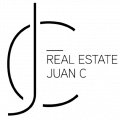





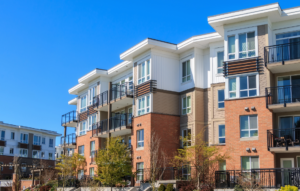


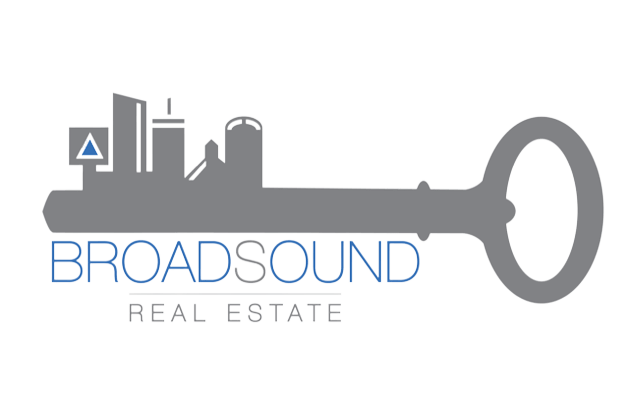
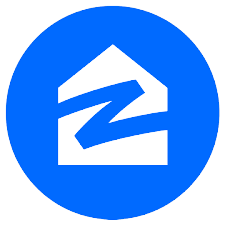


![eBook How to Increase Home Value [7 Simple Ways]](https://realestatejuanc.com/wp-content/uploads/2022/03/FORMAS-WAYS-TO-INCREASE-YOUR-HOME-VALUE.png)